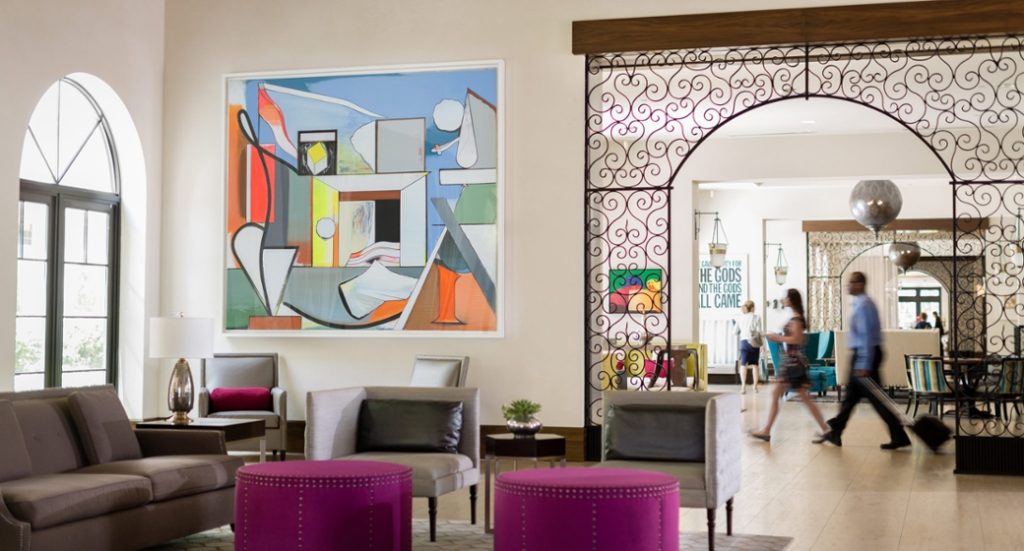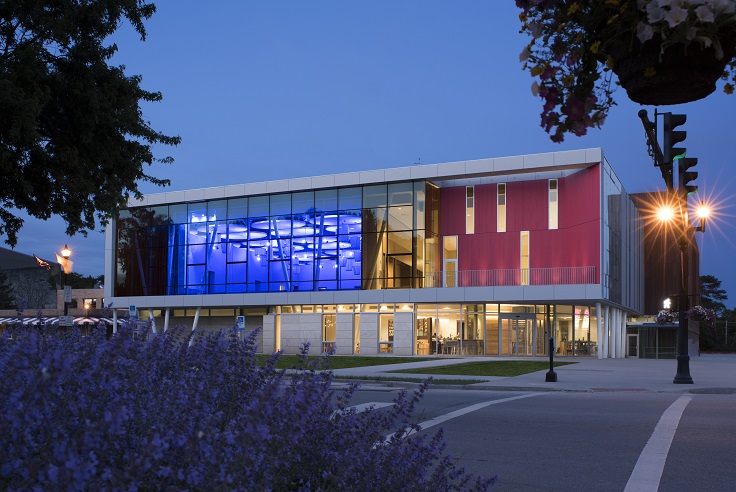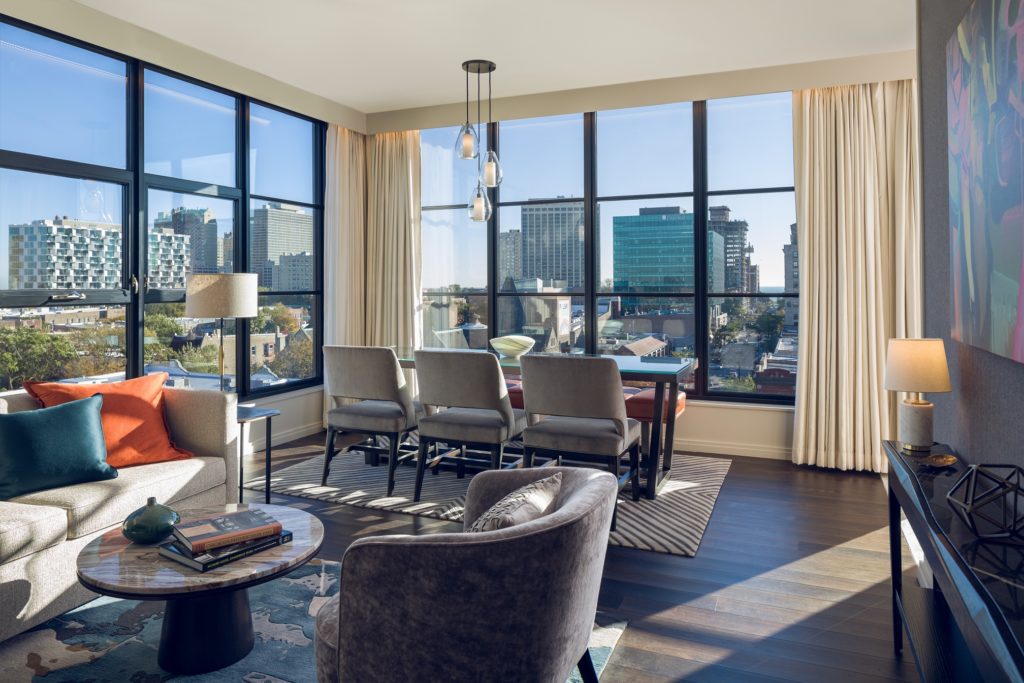There’s growing evidence that campus hotels are a good barometer for economic and pandemic recovery, especially as the industry looks to fall 2021 when colleges reopen and there’s a return to in-person learning. No one knows this better than Olympia Hotel Management, a division of The Olympia Companies, and an industry leader continually refining the concept of campus hotels for the past decade.
The company, whose goal is to genuinely and creatively link campus and community, has been in the forefront of campus hospitality, developing and managing such independent properties as The Alfond Inn at Rollins and The Hotel at Oberlin, boutique-style hotels conceived and designed in collaboration with their respective colleges. Olympia also developed and currently manages the award-winning SOPHY® Hyde Park, a Preferred Hotel for the University of Chicago.

The portfolio includes the Kent State University Hotel & Conference Center and the Best Western University Hotel for St. Lawrence University. Olympia also manages such franchised college town properties as the Hilton Garden Inn Durham (Duke University) and Residence Inn Charlottesville Downtown (University of Virginia).
John Schultzel, Chief Growth Officer of The Olympia Companies, recently spoke to the changes taking place at campus hotels as the company casts an eye on the post-pandemic outlook for this specialized market.

Can you give us an idea of how campus hotels can be bellwethers for the restart?
Our hotel practices are influenced by the institutions they serve. Right now, colleges and universities are being held to a very high standard, as parents place a certain degree of expectation for the school to responsibly manage the health and welfare of their children on campus, be it in residential life or in the classroom. Exceptional testing and encouraging vaccination to the extent possible reflect this focus. As colleges and universities commit to bringing students back in the fall, it will indicate a level of confidence that living and gathering can be done safely. Campuses have doubled down on testing, tracking and vaccinating. Now some colleges and universities have announced that only fully-vaccinated students will be permitted back on campus next autumn.
What other changes are affecting your campus properties?
Our hotels have had to be partners in safety standards with the institutions from the beginning, sending a message to parents that it is okay to travel once again and to send their kids away safely to school. It also sends a message to prospective students and parents, who strongly prefer to visit a school firsthand before committing to enrollment. When the students and parents are back, I believe there will be an expanding sense that we are marching towards recovery.
College hotels often rely on food & beverage to create common ground for campus and community. The suspension or modification of service has greatly interrupted this dynamic. The ‘living room’ sensation that we create in the public space has been on pause, so having visitors and residents sharing these buildings again will be a welcome sight.

Campus hotels are clearly at the heart of the community. How valuable is that as travel returns?
This is especially true in smaller college towns where the hotel is a community centerpiece. Our lobbies and restaurants at The Alfond Inn at Rollins in Winter Park and The Hotel at Oberlin in Ohio, for instance, are social hubs where campus and community intersect. Overnight guests also spend money in retail stores and other outlets, so having people in the hotels represents prosperity for local businesses and the institution alike. The Hotel at Oberlin, The Alfond Inn at Rollins and SOPHY Hyde Park were expressly designed to feel authentic and comfortably part of the campus whether you happen to be an alumnus, a visitor or an unrelated guest.
That’s all decidedly by design. From the start, these properties were intentionally engineered to be a part of the community. You see that at Oberlin but you also see it at Hamilton’s Kitchen, the restaurant at The Alfond Inn at Rollins. Both restaurants are relaxed environments, not white tablecloth dining. At Hamilton’s, there are farm tables that can bring guests together, which they did pre-pandemic and will again post-pandemic. At a sophisticated city hotel like SOPHY, the dining tables at Mesler Restaurant & Bar face onto 53rd Street and reach out to the community. These are places to gather, see and be seen but also bring visitors and customers back to the neighboring shops and offices.

How did these hotels fare during the pandemic?
Each one navigated the pandemic differently but they all aspired to serve and provide whatever resources they could. At The Hotel at Oberlin, for example, the hotel rooms were used by the college but the restaurant remained opened and welcomed locals. By offering to-go options for both Valentine’s Day and Easter, they were still able to safely be a part of the holidays for the community. SOPHY Hyde Park donated rooms to medical personnel at the beginning of the pandemic and later worked with the University of Chicago to provide a certain number of rooms to students before returning to full hotel status this spring. We know that colleges have fluid and dynamic environments and that’s been more evident than ever over the past year or so.
What sort of demand are you seeing?
So much of campus hotel demand is generated by large events. We are already seeing a variety of different approaches to on-campus graduation ceremonies this spring. Advance bookings for sporting events for both visiting teams and spectators will give an early indication of attitudes towards gathering, especially since many fall sports are hosted in outdoor venues. The outlook is strong for campus hotels, so in keeping with the category, I’d give them an A+.

